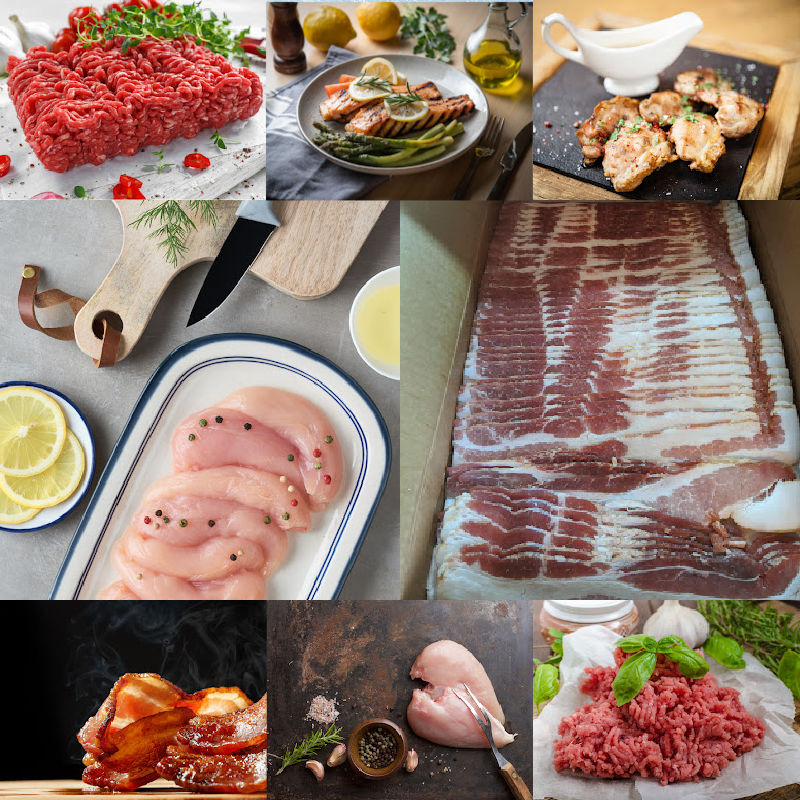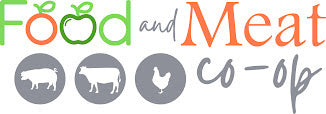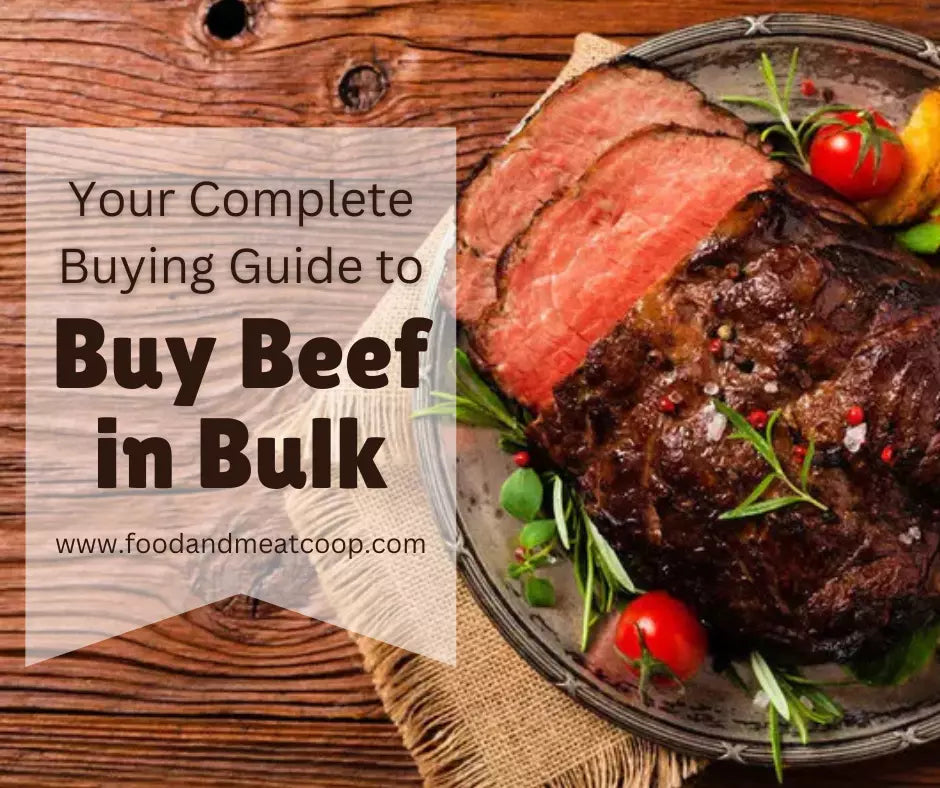Stock up your freezer for winter and enjoy savings, convenience, and peace of mind. Learn how much freezer space you need per pound of meat, the benefits of bulk meat bundles, and smart tips for storing and organizing your freezer.

Winter can be a challenging time for meal planning and grocery shopping. Shorter days, unpredictable weather, and the holiday season make it more convenient—and often more economical—to have a well-stocked freezer.
But beyond convenience, there are several benefits to keeping your freezer full of quality meats and other essentials. Let's explore why stocking up for winter is smart, how to do it efficiently, and how much freezer space you actually need per pound of meat.
Why Stocking Up for Winter Makes Sense
1. Convenience When Life Gets Busy
Winter is a season filled with festivities, family gatherings, and sometimes unexpected changes in routine. Having a full freezer means fewer trips to the grocery store and quick access to meals. Imagine pulling out a frozen chicken breast, beef roast, or pre-portioned meal when the snow is falling outside. A stocked freezer helps you stay organized and ensures you’re never scrambling for dinner.
2. Save Money with Bulk Meat Purchases
One of the biggest advantages of stocking up is cost savings. Buying meat in bulk or as part of freezer bundles is often cheaper than purchasing individual cuts at retail prices. For example, purchasing a ¼ cow or a large case of bulk chicken from the Food and Meat Co-op not only saves money but also guarantees high-quality, natural meat without the middleman markup.
3. Access to High-Quality, Grass-Fed Meat
Winter is a great time to plan your meals around quality protein. By stocking up, you can select premium options, including grass-fed, pasture-raised, or organic meats. These options may be harder to find in smaller quantities at local grocery stores, but buying in bulk ensures you always have your preferred cuts on hand.
4. Reduce Food Waste
When your freezer is organized, it’s easier to track what you have and plan meals accordingly. This helps reduce food waste because everything has a designated space, and you can rotate items effectively. Properly stored frozen meat can last for months, giving you plenty of time to enjoy it without worry.
5. Emergency Preparedness
Winter weather can be unpredictable. Snowstorms, ice, and road closures can make grocery trips challenging. A stocked freezer gives you peace of mind, ensuring your family has enough food in case of an emergency. Think of it as a safety net that helps you stay prepared for whatever winter throws your way.

How Much Freezer Space Do You Need Per Pound of Meat?
Before you stock up, it’s essential to understand how much freezer space you’ll need. The general rule of thumb for meat storage in a standard freezer is:
1 cubic foot of freezer space can hold about 35-40 pounds of meat.
Here’s a more detailed breakdown:
| Freezer Size | Approx. Pounds of Meat |
|---|---|
| 5 cu ft | 175-200 lbs |
| 10 cu ft | 350-400 lbs |
| 15 cu ft | 525-600 lbs |
| 20 cu ft | 700-800 lbs |
Keep in mind, these numbers are approximate and depend on how efficiently you pack your freezer. Using vacuum-sealed bags, stacking meat efficiently, and avoiding air gaps can help you maximize space. It’s also wise to leave a little extra room for air circulation, which ensures your freezer maintains a consistent temperature.
Head over here for more tips on how much freezer space do you need per pound of meat?
Tips for Stocking Up Your Freezer
1. Plan Your Purchases
Start by deciding how much meat your household consumes weekly. For instance, a family of four might eat 2-3 pounds of meat per day. Multiply this by the number of days you want to cover, and you’ll have a clear goal for your bulk purchase.
2. Choose a Variety of Meats
Variety is key for meal planning. Stock a mix of chicken, beef, pork, and even specialty meats like bison or lamb. Different cuts offer flexibility for various recipes, from quick weeknight dinners to hearty weekend meals.
3. Use Freezer Bundles
Freezer bundles are an excellent way to stock up efficiently. The Food and Meat Co-op offers curated bundles that include a mix of popular cuts. These bundles save time, money, and the guesswork of selecting cuts individually.
See what’s inside our chicken and beef box freezer bundle—click to watch the unboxing and discover how much food you can stock in your freezer.
4. Label and Date Everything
Proper labeling is crucial for a well-organized freezer. Include the type of meat, cut, and the date it was frozen. This helps you rotate items effectively and prevents older items from getting forgotten in the back of the freezer.
5. Invest in a Quality Freezer
If you plan to stock up regularly, a chest freezer is often more efficient than a standard upright freezer. Chest freezers maintain a more consistent temperature, store larger quantities, and can be more energy-efficient. Check out these top 10 picks of the best prices on upright and chest freezers.
6. Use Proper Packaging
Vacuum-sealing or tightly wrapping meat in freezer-safe bags or butcher paper prevents freezer burn and preserves flavor. Avoid using regular plastic wrap, as it can allow air to seep in and degrade the quality of the meat over time.
7. Organize by Meal Type or Protein
For easy access, consider grouping meat by protein type or even by intended meal. For example, keep all chicken breasts together, all roasts together, or portion out meat for specific recipes. This system reduces the time spent searching and keeps your freezer efficient.

Common Questions About Stocking Up for Winter
Q: How long can I keep meat in the freezer?
- Beef roasts & steaks: 6–12 months
- Ground beef: 4–6 months
- Chicken (whole): Up to 12 months
- Chicken (pieces): 9 months
- Pork chops & roasts: 4–8 months
- Fish: 3–6 months (fatty fish), up to 8 months (lean fish)
For best quality, use a vacuum sealer or heavy-duty freezer paper. Proper packaging and consistent temperature (0°F or below) make a big difference in how long meat maintains flavor and texture.
Q: Can I refreeze meat after thawing?
It’s safe to refreeze meat if it has been thawed in the refrigerator and has not been left out at room temperature for more than 2 hours. However, the quality may decrease slightly with each freeze-thaw cycle.
Q: What’s the best way to thaw meat?
The safest methods are:
- Refrigerator thawing: Plan ahead and thaw meat overnight.
- Cold water thawing: Submerge in cold water, changing water every 30 minutes.
- Microwave thawing: Only if cooking immediately afterward.
Q: How do I calculate how much meat to buy for my family?
Estimate ½ pound of boneless meat per adult per meal. For a family of four, eating meat daily, you’ll need roughly 14 pounds per week. Multiply by the number of weeks you want to stock up for.
Q: Are freezer bundles worth it?
Yes! Freezer bundles offer convenience, variety, and savings. They’re especially helpful if you’re new to bulk buying or want to try different cuts without buying large quantities of each.
Q. What should I consider before stocking my freezer?
Before stocking up, think about three main factors:
- Freezer Space: Know how many cubic feet you have and how many pounds of food it can hold (about 35–40 lbs. per cubic foot).
- Budget & Meal Plan: Buy the right amount for your household’s weekly consumption so food doesn’t sit too long.
-
Organization: Invest in freezer-safe bags or vacuum sealers, and label everything with dates to avoid waste.
A little planning ensures your freezer stays full but not chaotic.
Q. How to stock a freezer with home-grown vegetables?
Home-grown veggies are freezer gold if prepped properly. Start by washing, blanching, and cooling vegetables before freezing. Blanching stops enzyme activity, so your veggies keep their color, flavor, and nutrients. After blanching, dry them well, spread them on a tray to pre-freeze individually, then transfer to freezer bags. Common veggies to freeze include corn, beans, peas, carrots, zucchini, and leafy greens like spinach or kale.
Q. What can you freeze in the freezer?
Almost anything! Beyond meat and vegetables, you can freeze:
- Bread and baked goods (like rolls, muffins, or cookie dough).
- Soups, casseroles, and stews (great for meal prep).
- Dairy items like cheese, butter, and even milk (though the texture may change slightly).
- Fruit (great for smoothies, pies, and snacks).
-
Herbs (freeze in ice cube trays with olive oil).
A freezer isn’t just for meat—it’s a tool for storing a variety of foods for long-term convenience.
Q. How do you store a freezer if you don't have the right storage?
If your freezer feels too small or you don’t have enough storage containers, you still have options:
- Use vacuum-sealed bags or freezer zip-top bags to save space.
- Store meat flat in thin layers so it stacks neatly.
- Use bins or baskets to separate proteins, veggies, and prepared meals.
If you find you’re constantly short on room, consider investing in a chest freezer or upright freezer—both are worth it for bulk buyers and gardeners.

Tips for Making the Most of Your Winter Stockpile
- Pre-portion Meals: Divide meat into meal-sized portions before freezing. This makes it easy to thaw only what you need.
- Rotate Inventory: Use the “first in, first out” principle to ensure older items are used before newer ones.
- Keep an Inventory List: Maintain a list on the freezer door of what’s inside. This saves time and reduces waste.
- Plan Recipes Ahead: Knowing what meals you want to make helps you buy the right cuts and prevents unnecessary purchases.
Why a Full Freezer Is the Smartest Winter Prep
Stocking up your freezer for winter is more than just a convenience—it’s a strategy for saving money, reducing food waste, and ensuring your family has high-quality meals all season long. By understanding how much freezer space you need, selecting the right meats, and organizing efficiently, you can transform your freezer into a valuable resource that supports stress-free meal planning.
At the Food and Meat Co-op, we make it easy to stock up with bulk meat options, freezer bundles, and high-quality natural meats. Whether you’re preparing for the holidays, cold weather, or simply looking to simplify your weekly meal prep, a well-stocked freezer is the ultimate winter solution.
Start stocking your freezer today, and enjoy the peace of mind that comes with knowing your family’s meals are covered all winter long.
You Might Also Like:
 Feeding a Family of Four on a Budget and Saving Hundreds of Dollars Each Month
Feeding a Family of Four on a Budget and Saving Hundreds of Dollars Each Month
Save Up to 50% Buying Meat in Bulk









